Fall 2023 Lecture Archive
* There will not be live-stream broadcast for this lecture, and it will not be recorded.
‡ There will be live-stream broadcast for this lecture, but it will not be recorded.
# This speaker will join remotely
^ Tentative in-person speaker
Fall 2023 Hoch Cunningham Environmental Lecture Schedule
- Sep. 7, 2023:
Under the Midnight Sun: Transitioning to Energy Sovereignty in the Arctic (Bindu Panikkar) - Sep. 14, 2023:
Extinction: What Can the Geological Past Tell Us About the Anthropocene (Noel Heim) - Sep. 21, 2023:
Industrial Chemicals and the Problem of Too Much Food (Adam Romero) - Sep. 28, 2023:
Lessons on Climate Communication from Los Angeles Times reporter Rosanna Xia (Rosanna Xia) - Sep. 29, 2023:
[WORKSHOP] Environmental Writing and Storytelling (for Tufts students only) (Rosanna Xia) - Oct. 5, 2023:
The Critical Role of States in the Energy Transition (Barbara Kates-Garnick) - Oct. 12, 2023:
Gastronativism: The Politics of Food and Sustainability (Fabio Parasecoli) - Oct. 19, 2023:
Climate Fiction: the Intersection of Climate Science, Literature, and Activism (Julie Carrick Dalton) - Oct. 26, 2023:
Subsistence and Persistence: Constructing Pasture in Koobi Fora, Kenya (Ben Davies) - Nov. 2, 2023:
Smart Reforestation: Advancing Tropical Forest Restoration for a Sustainable Future (Jefferson Hall) - Nov. 9, 2023:
Investigating How Much Water Karachi Actually Needs (Hassaan Khan) - Nov. 16, 2023:
Through Fire and Water: How Climate and Land Use Are Changing Tropical Landscapes and the Search for Solutions (Marcia Macedo) - Nov. 30, 2023:
Elephants & Engineering Technology for Conservation (Karen Panetta) - Dec. 7, 2023:
Investor Advocacy and Business Working to Address Climate Change (Tyler McCullough)
Fall 2023 Hoch Cunningham Environmental Lecture Information
Under the Midnight Sun: Transitioning to Energy Sovereignty in the Arctic
Speaker: Bindu Panikkar, University of Vermont
Thursday, September 7, 2023 | 12:00-1:00pm ET
Location: Alumnae Lounge, Aidekman Arts Center (40 Talbot Ave, Medford, MA 02155)
The history of electrification is neither straightforward nor simple but rather layered with many paradoxes. It is a deeply sociopolitical issue, embedded within the interconnected and interdependent projects of extractivism, colonial capitalism, frontier expansion, and region building. This talk will explore energy conflicts, rural electrification challenges and implications, and renewable transitions in the Arctic. Drawing on energy humanities, this talk will explore cultural ideologies of energy, the early history of electrification, and how remote communities in Alaska are transitioning to renewable resources. This talk will reveal how transitions are shaping a just and equitable future and energy sovereignty.
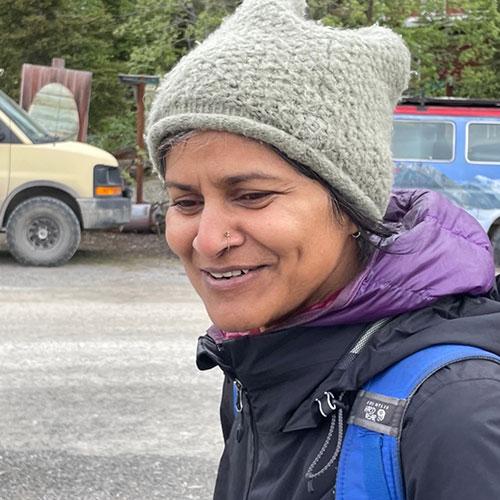
Bindu Panikkar is an Associate Professor at the Rubenstein School of Environment and Natural Resources and a Gund Fellow at the University of Vermont. She is also a Visiting Professor at the Alaska Center for Energy and Power and the Institute of Social and Economic Research at the University of Alaska. Her work examines environmental controversies surrounding emerging contaminants, land use development, and technology politics and its social, legal, ethical, and environmental justice implications
Extinction: What Can the Geological Past Tell Us About the Anthropocene
Speaker: Noel Heim, Tufts University
Thursday, September 14, 2023 | 12:00-1:00pm ET
Location: Curtis Hall Multipurpose Room (474 Boston Avenue, Medford, MA)
Lecture Recording – Sep. 14
Extinction is a fundamental evolutionary process that has been shaping the diversity and composition of Earth’s biosphere since the Cambrian Period, 540 million years ago. There are two fundamental aspects of extinction that paleontologists track over geological time: magnitude and selectivity. Magnitude indicates the rate of extinction while selectivity indicates which species were more prone to extinction. Insights into how the ongoing “6th extinction” is similar to and different from extinction events of the geological past can be made by comparing ancient extinction dynamics to estimates of realized and potential extinctions for today’s animals. This lecture will discuss these ideas and more.
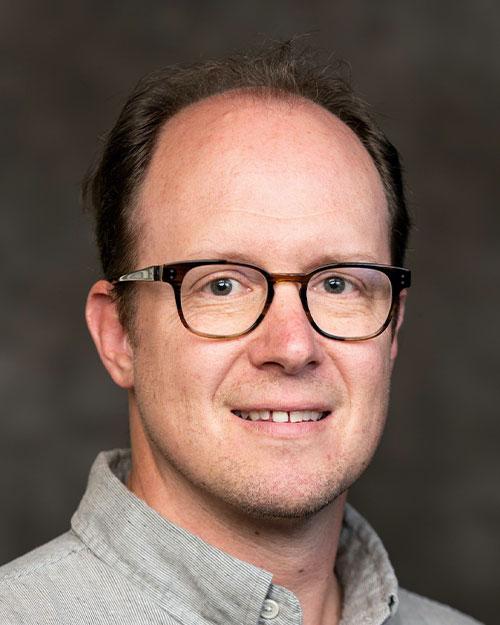
Noel Heim is a paleobiologist who reconstructs the history of Earth's biosphere from the dawn of animals through Anthropocene. He has spent much of the last decade compiling a database of fossil and living animal body sizes and ecological traits. Using this database alone and in conjunction with other data, he is attempting to answer big questions such as: Are evolution and extinction predictable? Is the extinction regime of the Anthropocene unique? How reliable is the fossil record? Has the Earth system stabilized over time? And how have mass extinctions reshaped the biosphere?
Industrial Chemicals and the Problem of Too Much Food
Speaker: Adam Romero, University of Washington Bothell
Thursday, September 21, 2023 | 12:00-1:00pm ET
Location: Curtis Hall Multipurpose Room (474 Boston Avenue, Medford, MA)
Lecture Recording – Sep. 21
After WWII, US agricultural output exploded, due in large part to the massive influx of industrial chemicals like pesticides and fertilizers. The consumption of farm products, however, did not keep pace and immense surpluses quickly accrued. This talk explores the role that credit played in the creation of an agricultural system of high chemical input use and chronic surplus production. It examines how the expansion of public and private credit along with the creation of new financial technologies gave farmers the ability to pay for more and more chemicals despite falling crop prices caused by too much food.
This lecture is also part of the 2023 Environmental Humanities Symposium.
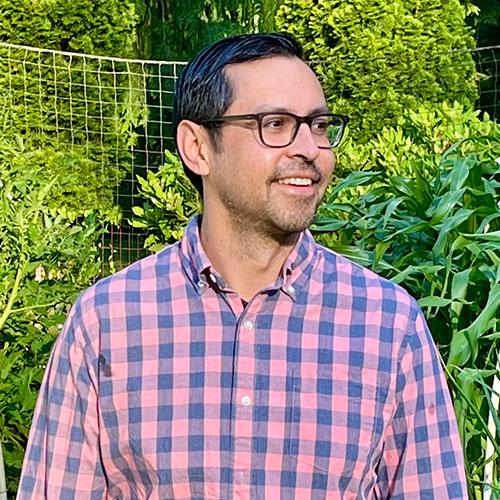
Adam M. Romero is an Associate Professor of Science, Technology, and Society at the University of Washington Bothell. He is the author of Economic Poisoning: Industrial Waste and the Chemicalization of American Agriculture (University of California Press), winner of the 2022 Agricultural History Society Theodore Saloutos Memorial Award for the best book on US agricultural history and the 2022 American Association of Geographers Cultural and Political Ecology Group Outstanding Publication Award in recognition of innovative scholarship in cultural and political ecology. As a scholar, he is interested in understanding why American farmers use so many industrial chemicals to grow our food and fiber. Adam is also an avid gardener and spends most of his free time in his garden, talking about gardening, or helping others with their gardens.
Lessons on Climate Communication from Los Angeles Times reporter Rosanna Xia
Speaker: Rosanna Xia, Los Angeles Times
Thursday, September 28, 2023 | 12:00-1:00pm ET
Location: Curtis Hall Multipurpose Room (474 Boston Avenue, Medford, MA)
How do you communicate a crisis as overwhelming as climate change? What is the balance between sounding the alarm and not losing all hope? Join Los Angeles Times reporter Rosanna Xia for a lecture that will break down how journalists today are writing about environmental disasters, with lessons learned on what has (and has not) been effective. Xia will also introduce her new book, California Against the Sea, and share insights from her award-winning reporting on sea level rise. In-person audience members will have a chance to purchase signed copies of the book at the event, and three copies of the book will be raffled off to three audience members.
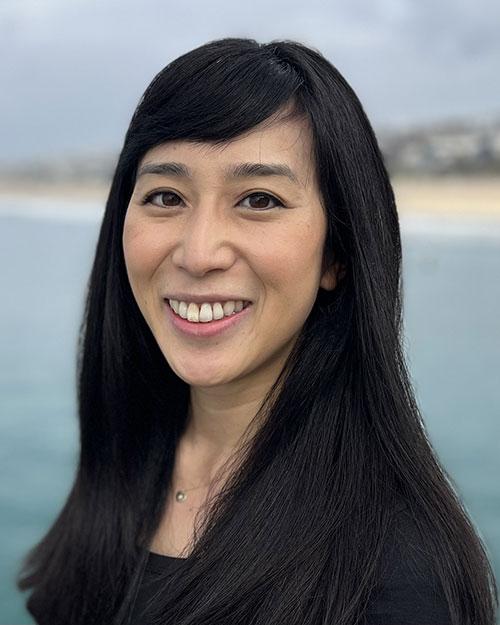
Rosanna Xia is an environmental reporter for the Los Angeles Times, where she specializes in stories about the coast and ocean. She was a Pulitzer Prize finalist in 2020 for explanatory reporting, and her work has been anthologized in the Best American Science and Nature Writing series. Her first book, California Against the Sea, comes out September 26, 2023.
[WORKSHOP] Environmental Writing and Storytelling (for Tufts students only)
Speaker: Rosanna Xia, Los Angeles Times
Friday, September 29, 2023 | 12:00-2:00pm ET
Location: In-person on Tufts Medford Campus, exact location TBD.
“Tell me the facts and I’ll learn. Tell me the truth and I’ll believe. But tell me a story and it will live in my heart forever.” In this 2-hour workshop, students and Rosanna will dive into the narrative-writing techniques that help people connect more deeply with an issue. Through guided examples, we’ll explore how the fundamental building blocks of storytelling (tension, sensory detail, characters, and scenes) can turn complex issues into engaging forms of environmental communication. We’ll conclude with a Q&A and some tried-and-true tips on sharpening your own prose. Registration for the workshop is required, and students will be encouraged to read two short (but fun!) readings ahead of the workshop. (Maximum of 12 students)
The Critical Role of States in the Energy Transition
Speaker: Barbara Kates-Garnick, Tufts University
Thursday, October 5, 2023 | 12:00-1:00pm ET
Location: Curtis Hall Multipurpose Room (474 Boston Avenue, Medford, MA)
Lecture Recording – Oct. 5
The urgent need for an energy transition is upon us as recently demonstrated by global climate events, and many US states are on the front lines of implementing policy changes to reduce greenhouse gas emissions. This lecture will provide an overview of some challenges that the states are facing and the policy levers available to them to implement meaningful changes. There is a growing recognition about the important role that states can play in accessing renewable energy, implementing demand reduction, and addressing energy inequities. Many states have promulgated aggressive climate goals that under current conditions will be difficult to achieve. Framing the opportunities and complexities of implementing this transition will be critical for developing successful policy outcomes and dealing with the trade-offs along the way.
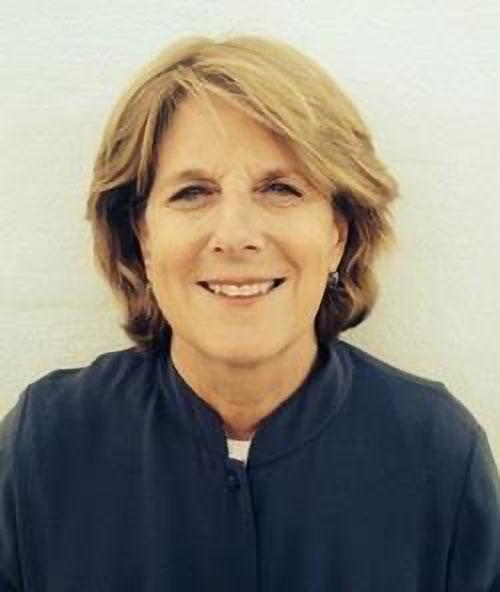
Barbara Kates-Garnick has been a Professor of Practice at the Fletcher School at Tufts University since 2014 from which she received both her Masters and Ph.D. degrees. She has had a 40-year plus career in the energy field, spanning consulting, state and local government, utilities, incubators, and a start-up. Her leadership roles include Undersecretary for Energy in Massachusetts, Commissioner of Public Utilities (MA DPU), Vice President at KeySpan, and part of the founding team at NewEnergy where she sold the first tranche of competitive electricity in the US. At the MA DPU, she promulgated one of the US’ first attempts to quantify environmental externalities. Her current research interests include the transmission of Offshore Wind on which she is closely collaborating with Tufts School of Engineering. She also serves on several for profit and non-profit boards, including Resources for the Future (RFF), a leading think tank at the intersection of energy and environment, PowerOptions, a MA nonprofit assisting other nonprofits with energy management and procurement, and Anbaric Transmission, an independent transmission company. She holds an AB degree from Bryn Mawr College.
Gastronativism: The Politics of Food and Sustainability
Speaker: Fabio Parasecoli, New York University
Thursday, October 12, 2023 | 12:00-1:00pm ET
Location: Curtis Hall Multipurpose Room (474 Boston Avenue, Medford, MA)
The table unites and divides: it connects those who get to sit around it and excludes those who have not been invited. In recent decades we have witnessed the rise of gastronativism, the ideological use of food to determine who belongs and who doesn’t in a community. Diverging approaches to sustainability in the food system are also leveraged for political goals. In connection with the specific form of globalization we have been experiencing since the 1980s, gastronativism also focuses on the impact of the environment on food and vice versa.
This lecture is co-sponsored by the Tufts Romance Studies Department, Urban and Environmental Policy and Planning Department, Anthropology Department, Center for the Humanities at Tufts, Political Science Department, the Diversity Funds, Department of Education Department, and the Tisch College for Civic Life.
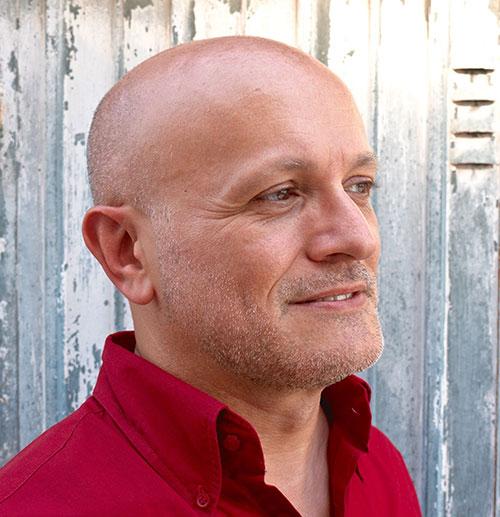
Fabio Parasecoli is a Professor of Food Studies in the Nutrition and Food Studies Department at New York University. His research explores the cultural politics of food, particularly in media, design, and heritage. Recent books include Knowing Where It Comes From: Labeling Traditional Foods to Compete in a Global Market (2017), Food (2019), and Global Brooklyn: Designing Food Experiences in World Cities (2021, coedited with Mateusz Halawa) and Gastronativism: Food, Identity, Politics (2022).
This lecture is co-sponsored by Tufts Environmental Studies Program, Tufts Department of Romance Studies, the Diversity Fund, the Department of Urban and Environmental Planning, the Tufts Department of Anthropology, CHAT, the Tufts Department of Political Science, the Tufts Department of Education, and Tisch College for Civic Life.
Climate Fiction: the Intersection of Climate Science, Literature, and Activism
Speaker: Julie Carrick Dalton
Thursday, October 19, 2023 | 12:00-1:00pm ET
Location: Curtis Hall Multipurpose Room (474 Boston Avenue, Medford, MA)
Lecture Recording - Oct. 19th
Fiction has the power to stir empathy, broaden a reader's worldview, and move readers toward action. Author Julie Carrick Dalton will discuss her latest novel, The Last Beekeeper, a near-future story about a beekeeper and his daughter as the world's pollinator population dies off. Dalton will share examples from the growing canon of Climate Fiction to illustrate how storytelling can broaden the ways we engage with climate science, hope, and activism. Copies of Julie's book will be available for sale a the lecture and we will raffle off 3 copies to audience members as well.
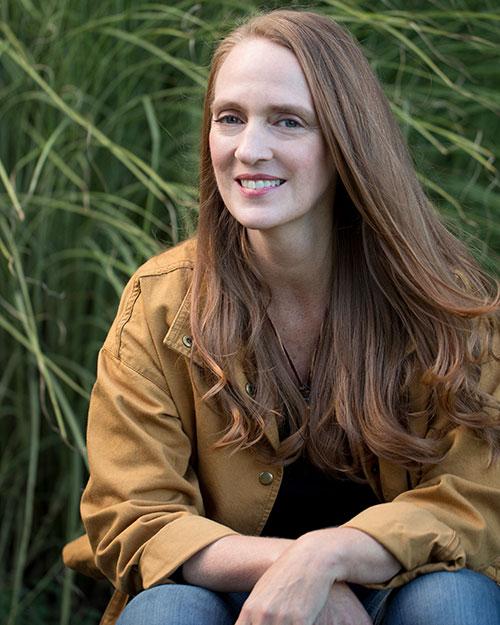
Julie Carrick Dalton is the author of The Last Beekeeper and Waiting for the Night Song, a Most Anticipated novelby CNN, USA Today, Newsweek, and Parade. With a background in journalism, agriculture, and beekeeping, she is a frequent speaker at universities, museums, libraries, and conferences on the topic of fiction in the age of climate crisis. Her writing has appeared in The Boston Globe, BusinessWeek, The Hollywood Reporter, Orion, and numerous other publications. An alum of Bread Loaf, Tin House, and GrubStreet's Novel Incubator, Julie will be joining Drexel's MFA in Creative Writing faculty in 2024. She is currently working on a new novel slated for publication in 2025.
Subsistence and Persistence: Constructing Pasture in Koobi Fora, Kenya
Speaker: Ben Davies, Tufts University
Thursday, October 26, 2023 | 12:00-1:00pm ET
Location: Curtis Hall Multipurpose Room (474 Boston Avenue, Medford, MA)
Lecutre Recording - Oct 26
Mobile pastoralism – in which communities raise livestock herds by moving between shared grazing areas – is a common subsistence livelihood in arid and semi-arid lands. Recent studies have emphasized the disruptive and creative role of mobile pastoralism in the maintenance of grassy ecosystems and their biodiversity. This talk will introduce an interdisciplinary study investigating these effects among Daasanach pastoralist communities in northern Kenya. In particular, it will consider how Daasanach herding shapes the character of the ecosystems used for pasture and contributes to the long-term persistence of pastoralism in this environment.
This lecture is co-sponsored by the Tufts Center for Animals and Public Policy.
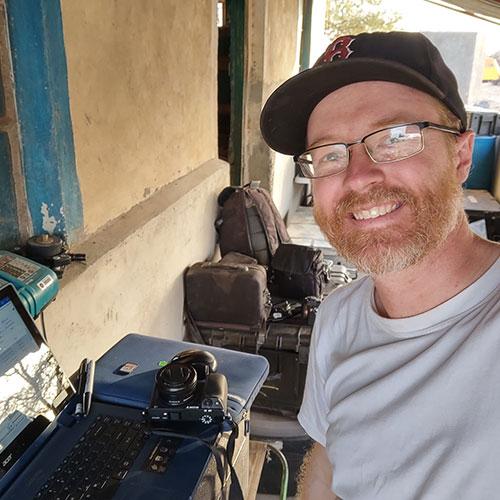
Ben Davies is a lecturer in the Tufts Environmental Studies program. His research is centered on understanding complexity in the coupling of human and natural systems, past and present. Ben received a PhD in Anthropology from the University of Auckland and undertook postdoctoral research at the University of Utah and Yale University. He contributes to several interdisciplinary projects, including modeling long-term cultural and biological regionalization in Malawi; studying mobility and resilience of pastoralist communities in northern Kenya; understanding the impacts of fire use by early human ancestors; and building serious games that help communities plan for climate change adaptation. His research has been supported by grants from the New Zealand MBIE, British Museum, and the National Science Foundation.
Smart Reforestation: Advancing Tropical Forest Restoration for a Sustainable Future
Speaker: Jefferson Hall, Smithsonian Tropical Research Institute
Thursday, November 2, 2023 | 12:00-1:00pm ET
Location: Curtis Hall Multipurpose Room (474 Boston Avenue, Medford, MA)
Lecture Recording - Nov. 2
Tropical reforestation has been recognized as an important tool in combating climate change as young forests can potentially take copious amounts of carbon dioxide out of the atmosphere. Yet restoring forests on infertile or degraded soils, the soils most likely targeted for restoration, can be particularly challenging. Smart Reforestation® is about planting the right trees in the right place, at the right time, and for the right reason. This talk will discuss how results from research on ecosystem services at the Smithsonian Tropical Research Institute’s Agua Salud Project have helped to advance Smart Reforestation and sustainable land management.
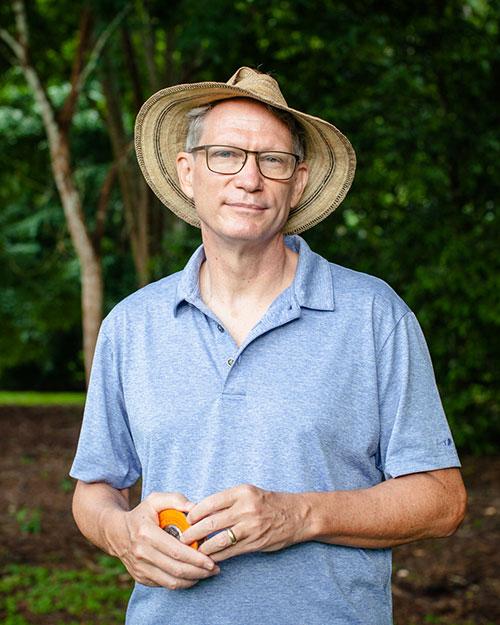
Jefferson Hall is a Staff Scientist at the Smithsonian Tropical Research Institute (STRI) and the lead scientist on the Agua Salud Project. A major research focus is on understanding the flow of goods and services provided by tropical forests and how they change with land use and climate change. His research projects include multidisciplinary teams of foresters, ecologists, hydrologists, economists, social scientists, and educators. During the last 10 years, Jeff has led the establishment of a series of forest restoration trials that leverage Agua Salud research to restore forests for diverse benefits. In the Panama Canal Watershed and the Ngäbe-Buglé Comarca in western Panama Jeff and his team have combined more equitable carbon payments to indigenous peoples and other rural residents with their restoration trials. Prior to joining the staff at STRI Dr. Hall worked for 20 years on different aspects of conservation and development in Central Africa. He started his career as a Peace Corps science teacher in Africa. He helped establish two protected areas, including the Okapi Faunal Reserve, a multiple-use Reserve the size of Connecticut. He led a multi-year survey to understand the distribution and abundance of the Eastern Lowland Gorilla before undertaking his PhD research on the sustainable management of African mahogany. Jeff has authored over 100 scientific publications and policy and extension-related books, book chapters, white papers, and other reports.
Photo credit: Tarina Rodriguez
Investigating How Much Water Karachi Actually Needs
Speaker: Hassaan Khan, Tufts University
Thursday, November 9, 2023 | 12:00-1:00pm ET
Location: Curtis Hall Multipurpose Room (474 Boston Avenue, Medford, MA)
Lecture Recording - Nov 9
The discourse around water challenges in megacities in South Asia focuses overwhelmingly on a perceived ‘shortage’ in supply compared to water demand. However, estimates for water demands in such cities are often exaggerated, not informed by local socioeconomic and demographic characteristics, and don’t account for seasonal variability. This lecture will present two approaches to estimating household water use in the coastal megacity of Karachi, Pakistan. Along with the study findings, this lecture will feature a discussion of the infrastructural and institutional challenges of producing empirical evidence to inform urban water management in the Global South.
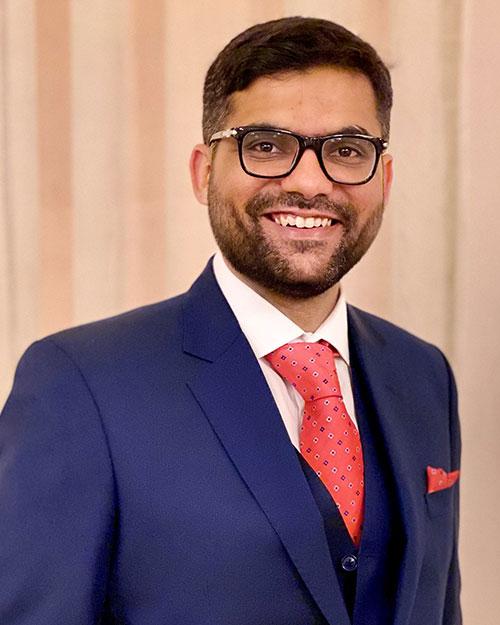
Hassaan F. Khan is an Assistant Professor in the Department of Urban and Environmental Policy and Planning, with a secondary appointment in Environmental Studies at Tufts University. His teaching and research focus on issues of environmental justice and equity, combining rigorous systems analysis with mixed methods approaches, to study water management in the global south. Dr. Khan currently leads an interdisciplinary research group (KWP) engaged in investigating approaches to inform water management in megacities across South Asia. He was previously a Postdoctoral Scholar at Stanford University in where he developed integrated hydrogeologic and human systems models to inform sustainable urban water management in Amman (Jordan) and Pune (India). Dr. Khan holds a PhD in Water Resources Engineering from the University of Massachusetts Amherst and a B.S. in Civil and Environmental Engineering from Lafayette College.
Through Fire and Water: How Climate and Land Use Are Changing Tropical Landscapes and the Search for Solutions
Speaker: Marcia Macedo, Woodwell Climate Research Center
Thursday, November 16, 2023 | 12:00-1:00pm ET
Location: Curtis Hall Multipurpose Room (474 Boston Avenue, Medford, MA)
Lecture Recording - Nov 16
The Brazilian Amazon and Cerrado biomes are experiencing rapid land use and climate changes that have intensified and accelerated over the last decade. Together with other human disturbances, these processes increase forest degradation and alter the regional water balance, with profound implications for fire regimes, freshwater ecosystems, and local livelihoods. Dr. Marcia Macedo will present ongoing research on how these compounding disturbances are changing the trajectory of these tropical ecosystems. Based on over twenty years of research in the region, she will also share her perspective on how data from field observations, satellites, and modeling can be integrated to support management interventions and identify science-based solutions.
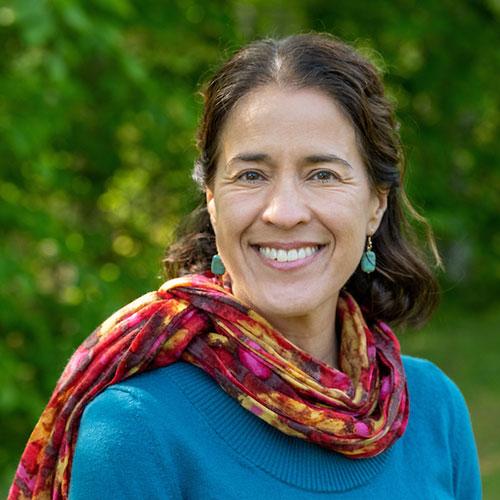
Marcia Macedo is an ecosystem ecologist studying the environmental and societal tradeoffs among forest conservation, food production, and climate stability in tropical regions. Her research explores how agricultural expansion and climate change are reshaping tropical landscapes by altering the water cycle and fire dynamics, focusing on hotspots of connection between upland forests and aquatic ecosystems. Recent work has focused on translating this information for operational use by decision-makers including agricultural producers, forest managers, and firefighters in the Brazilian Amazon. Marcia is an Associate Scientist and Director of the Water Program at the Woodwell Climate Research Center (Woodwell), and a Research Associate at the Instituto de Pesquisa Ambiental da Amazonia (IPAM) in Brazil. Before joining Woodwell, she spent five years working as a Program Officer for the Gordon and Betty Moore Foundation, where she managed conservation science grants for their Andes-Amazon Initiative. Marcia holds a MSc in Sustainable Development & Conservation Biology from the University of Maryland and a PhD in Ecology, Evolution, & Environmental Biology from Columbia University.
Elephants & Engineering Technology for Conservation
Speaker: Karen Panetta, Tufts University
Thursday, November 30, 2023 | 12:00-1:00pm ET
Location: Curtis Hall Multipurpose Room (474 Boston Avenue, Medford, MA)
Online Viewer Livestream Registration – Nov. 30
Artificial Intelligence holds much promise to help us explore, explain, and expand our knowledge of the universe. It can be a game changer to advance and expedite applications for autonomous operations to efficiently explore trends in massive data sets. However, there are major challenges we must overcome to fully utilize AI. One challenge is ensuring the results of AI are conducive for human consumption. This includes ensuring that imagery sensor data is optimal for human visual perception, without the need for a human evaluator in the loop. This talk will present Human Visual System (HVS) methods that emulate the way humans evaluate quality. We show how to utilize this concept in computer vision to ensure AI recognition and detection systems produce optimal results for safety, security, and biomedical applications. Quantitative quality metrics based on Human vision and new efficient AI architectures are introduced to address the challenges. Finally, we will also explore real-world applications of these methods will be demonstrated for removing weather anomalies, detecting disease, and showing the impact of these methods to increase detection performance for AI recognition systems.
This lecture is co-sponsored by the Tufts Center for Animals and Public Policy and the Tufts Elephant Conservation Alliance.
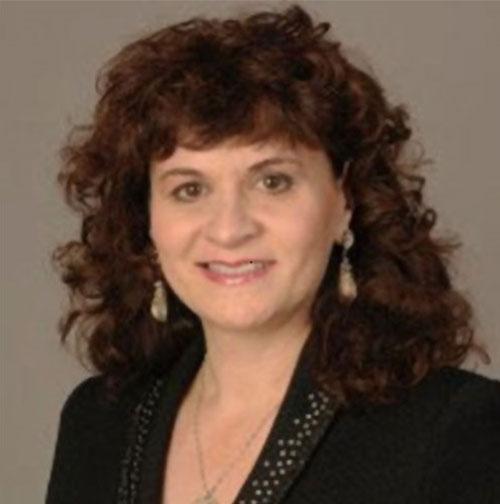
Dr. Karen Panetta received her B.S. degree in computer engineering from Boston University, Boston and her M.S. and Ph.D. degrees in electrical engineering from Northeastern University, Boston. She is currently the Dean of Graduate Engineering Education and a Professor with the Department of Electrical and Computer Engineering at Tufts University. She also holds secondary appointments in Computer Science and Mechanical Engineering. She is the Director of the Panetta Vision and Sensing System Laboratory. Her research interests include developing efficient algorithms for Artificial Intelligence, simulation, modeling, signal, and image processing for ocean engineering, biomedical and security applications. She was a recipient of the 2012 IEEE Ethical Practices Award and the Harriet B. Rigas Award for Outstanding Educator. In 2011, she was awarded the Presidential Award for Engineering and Science Education and Mentoring by U.S. President Obama for her Nerd Girls Program to empower young women in STEM. She is the Vice President of the IEEE Systems, Man, and Cybernetics Society. She is the Editor-in-Chief of the award-winning IEEE Women in Engineering Magazine. She was the IEEE-USA Vice-President of communications and public affairs. From 2007 to 2009, she served as the Chair for the IEEE Women in Engineering, overseeing the world’s largest professional organization supporting women in engineering and science. Karen is the CEO and Co-founder of Tessera Intelligence Inc., Co-founder of Sea Deep Inc. and Co-inventor of the first Digital Twin.
Investor Advocacy and Business Working to Address Climate Change
Speaker: Tyler McCullough, Ceres
Thursday, December 7, 2023 | 12:00-1:00pm ET
Location: Curtis Hall Multipurpose Room (474 Boston Avenue, Medford, MA)
Online Viewer Livestream Registration – Dec. 7
Climate Change is having significant consequences on the world’s people, ecosystems, and economies. In 1989, after the Exxon Valdez oil spill, a group of investors asked if they could use their influence to protect the planet and Ceres was born. Today, it is more important than ever that investors, companies, and policymakers work together to address climate-related economic risks and opportunities. In this lecture, Tyler McCullough will discuss how investors are working with the companies they own to reduce GHG emissions, companies that are making progress and those that are lagging, and how companies can be influential advocates for climate policy at the state and federal levels.
Follow-up Student Q&A session (in-person, for Tufts students only)
Thursday, December 7, 2023 | 1:00-1:30pm ET
Location: Curtis Hall Multipurpose Room (474 Boston Avenue, Medford, MA)
After this lecture, students are invited to meet with Tyler to ask questions about Ceres, the climate finance sector, or any other questions they may have.
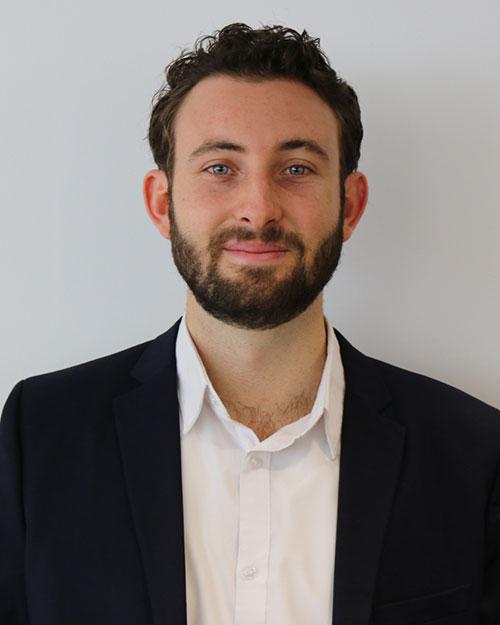
As a member of the Climate & Energy team at Ceres, Tyler McCullough coordinates work on Climate Transition Plans – supporting Ceres' sector experts, investors, and companies in creating and implementing near-term, quantitative, and time-bound plans to achieve their climate goals. Tyler joined Ceres in 2019 as a member of the Development team. During that time, he fundraised, tracked impact, and engaged staff leaders in program development for initiatives including Ceres' oil and gas, electric power, steel, clean transportation, federal policy, financial regulator, private equity, and environmental justice campaigns. Prior to Ceres, Tyler worked at environmental and political fundraising non-profits and taught English in Madrid, Spain. He holds a B.S. in Environmental Science and International Relations from Tufts University and is a FSA Credential Holder from the International Financial Reporting Standards Foundation.